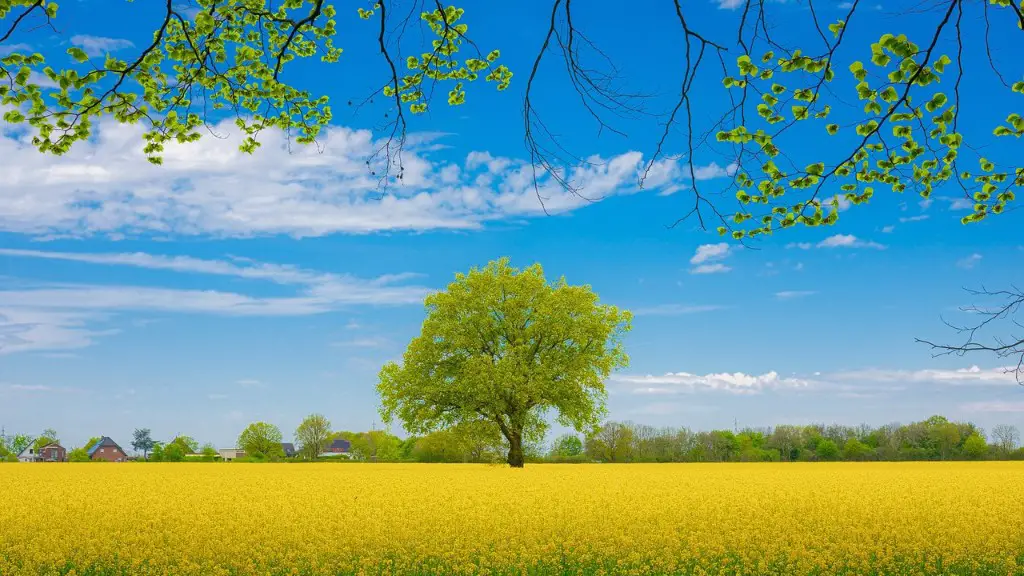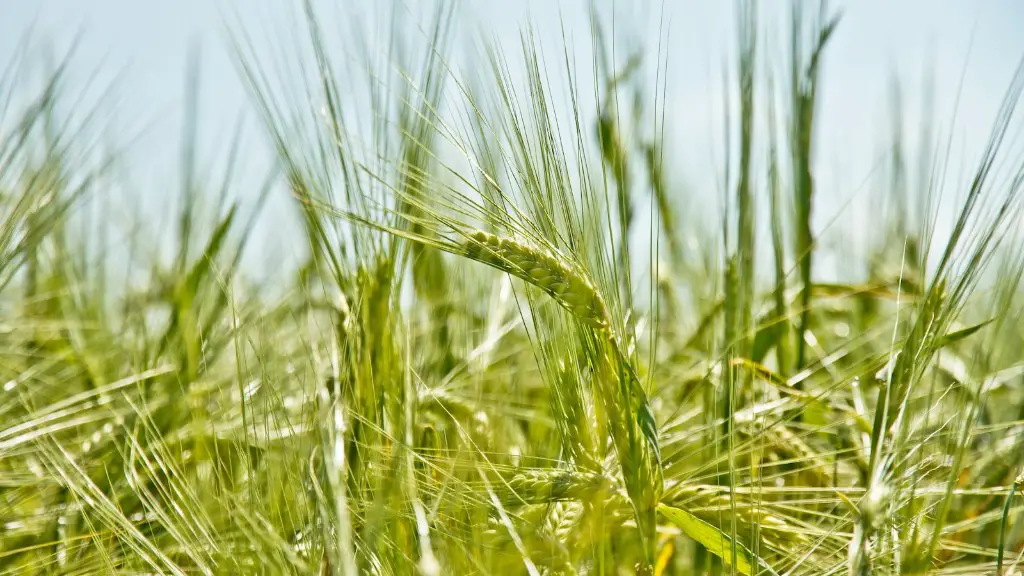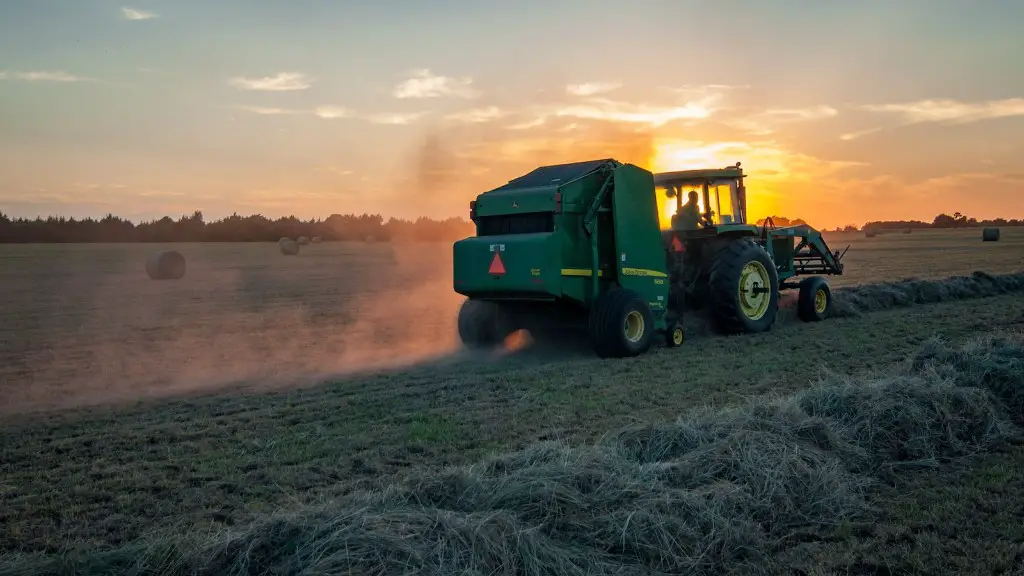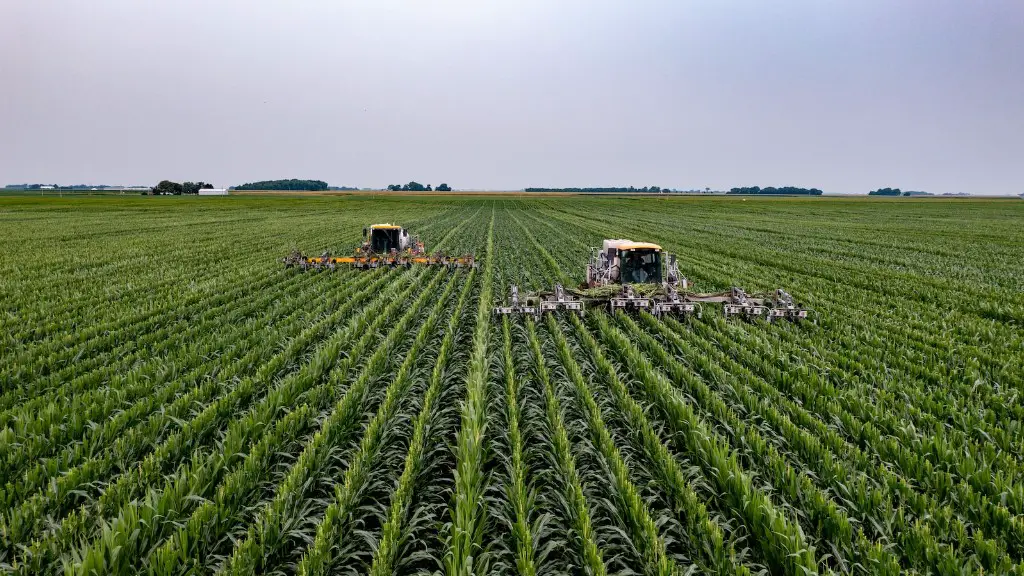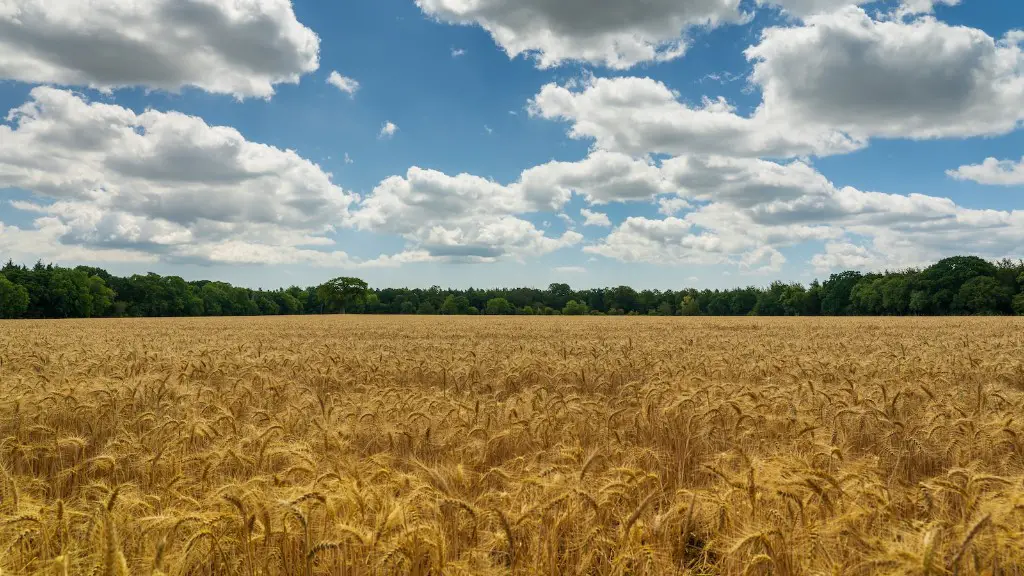Agriculture is an important part of the economy. It provides food, fiber, and other products that are essential to our way of life. Agriculture also provides jobs for millions of people around the world.
agriculture is the sector of the economy that is dedicated to the production of food and other raw materials. The agricultural sector is a critical part of most economies, as it is responsible for the production of a significant percentage of the food that is consumed by the population. In addition to being a major source of food, agriculture also provides a number of other benefits to the economy. For example, agriculture can provide employment opportunities for a significant number of people, and can also generate foreign exchange earnings through the export of agricultural products.
Why is agriculture important for the economy?
The agriculture sector is crucial for economic growth and poverty alleviation. It is estimated that growth in the agriculture sector is two to four times more effective in raising incomes among the poorest compared to other sectors. In least developed countries, agriculture can account for more than 25% of GDP. Therefore, investments in the agriculture sector are crucial for achieving sustainable development.
Agriculture’s share of the overall US economy has been steadily declining over the past few decades. In 2021, agriculture, food, and related industries contributed roughly $1264 trillion to US gross domestic product (GDP), a 54-percent share. The output of America’s farms contributed $1647 billion of this sum—about 07 percent of US GDP. This is a significant decrease from the 20 percent share of GDP that agriculture represented in 1970. The decline in agriculture’s share of GDP is largely due to the fact that the US economy has become increasingly service-oriented. The growth of the service sector has outpaced the growth of the agricultural sector, resulting in a decline in agriculture’s overall share of the economy.
What are 3 benefits of agriculture
The basic needs for human survival; food, shelter, and clothing, are all dependent on agriculture for their production. Raw materials such as crops for food, silk for cloth, and wood for shelter, all come from agriculture. Agriculture is thus a vital part of human civilization, and its importance cannot be understated.
Agriculture is the main source of raw materials for many industries. It is also important to international trade and the economy of many countries. Agriculture plays a big role in a nation’s revenue and can provide employment for a large number of people. It is also crucial to a country’s development. Agriculture can also help heal the environment.
Does agriculture increase economic growth?
The agricultural sector plays a vital role in a country’s economic growth cycle. This is because the sector provides the raw materials that are used in other industries to produce finished goods and services. The agricultural sector also employs a large number of people, which boosts the country’s employment levels and helps to drive economic growth. In addition, the sector provides food and other essential products that are necessary for the country’s population.
Agriculture plays a vital role in society by providing food, habitat, and jobs. It also provides raw materials for food and other products, and helps to build strong economies through trade. Agriculture has a profound impact on society, and it is important to understand its role in order to ensure a bright future for all.
How does agriculture reduce poverty?
The very poorest primarily benefit from agricultural growth through increased demand for their labour. Agricultural growth increases the probability of obtaining employment, and it may increase the salary level, thereby increasing the income that can be accrued from selling labour. The poorest people are often the most vulnerable to shocks such as droughts and floods, and so increasing agricultural growth can help to reduce poverty and vulnerability.
The Present era of farming contains dairy, fruit, forestry, poultry beekeeping and arbitrary etc However, it could be referred to as promotion, processing, marketing, and distribution of crops and livestock products. The main aim of agriculture is to provide safe and enough food to all people. It is considered as the backbone of the economic development for the rural areas. It provides a huge employment opportunity to the people in the field. Moreover, it also increases the standard of living of the farmers and their families. Agriculture also meets the industrial raw materials requirements and provides environmental stability.
Why agriculture is most important
Agriculture is the leading source of food and fabrics for the majority of the world. Common agricultural products include cotton, wool, and leather, while other lesser known items are also sourced from farming. In addition to food and clothing, agriculture also provides wood for construction and paper products. The types of agriculture and the products they yield can vary significantly from one region to another.
The social benefits for farm families are numerous and include a sense of achievement and fulfilment. These benefits come from seeing the effects the farm has on the people who spend time there, making a difference in the lives of individuals, and helping typically excluded people to become more included. The farm provides a unique and valuable experience for all who are involved.
How did agriculture impact society?
Today, the world’s population is over seven billion people. This is an incredible increase from just 10,000 years ago when the population was only five million. This growth is largely due to the development of agriculture. Agriculture allowed for the domestication of plants and animals which led to a more reliable food supply. This, in turn, allowed for cities and civilizations to grow.
Community agriculture can have many benefits, including fostering environmental connectedness, political consciousness, and activism among youth and adults. Additionally, it can decrease stormwater runoff and air pollution, and increase biodiversity and species habitat. Community agriculture can be a great way to get people involved in their community and the environment, and to promote a healthy lifestyle.
How can agriculture reduce inequality
Agricultural trade can help to reduce inequalities between countries by providing a market for goods and services produced in developing countries. However, agricultural trade can also exacerbate inequalities if trade policy measures are not designed carefully. For example, if tariffs or other trade restrictions make it difficult for developing countries to export their goods, this can lead to stagnation in their economies and increased inequality.
Agriculture is a vital part of many people’s livelihoods, but it can also have a significant impact on the environment. Agricultural activities can lead to soil erosion, water pollution, and climate change. They can also contribute to deforestation.
How agriculture change the life?
Agriculture brought about important changes in man’s lifestyle. Man gave up his nomadic life and settled down at one place in selected areas. He could grow his own food and no longer was a wanderer or gatherer. This settled lifestyle led to the development of civilizations.
Climate change mitigation is the process of reducing greenhouse gas emissions in order to limit the amount of global warming. Agricultural production can play a role in climate change mitigation by producing biofuels, which can substitute for fossil fuels and reduce emissions across multiple sectors. In addition, agricultural practices can be implemented to reduce emissions from livestock and soil.
Final Words
Agriculture is the process of producing food, feed, fiber and other goods by means of raising crops and livestock. Agriculture is a vital sector of the economy, providing employment for millions of people across the globe. In addition to providing food and other products, agriculture also helps to support economic growth and development. Agriculture provides a livelihood for many people living in rural areas, and it also generates income that can be used to purchase other goods and services. In addition, agriculture helps to position countries as leaders in the global economy by providing them with a comparative advantage in the production of certain crops and livestock.
Agriculture is the main driver of economic growth and development in many countries. It plays a vital role in poverty alleviation and food security. Agriculture also provides a livelihood for a large proportion of the world’s population. The sector is a major source of export earnings and government revenue. It is also a key contributor to employment, particularly in rural areas.
